Gaza, 03 Dzulhijah 1437/05 September 2016 (MINA) – Four buses transporting Palestinians designated as “humanitarian cases” in addition to several ambulances carrying injured and sick people traveled from the blockaded Gaza Strip on Sunday into Egypt, as Egyptian authorities opened the Rafah crossing for the second consecutive day.
One of the buses had initially attempted to cross on Saturday but was turned back by Egyptian authorities, and successfully made the journey on Sunday, Ma’an reported, quoting a statement from the border committee of Gaza’s Ministry of Interior.
A total of 593 Palestinians crossed to the Egyptian side on Saturday, while 494 Palestinians reached the Gaza Strip from Egypt, and 49 Palestinians were denied passage by the Egyptian authorities for unknown reasons.
The committee stressed that procedures at the border crossing were being processed very slowly by Egyptian authorities, as some 25,000 Palestinians registered by the ministry as humanitarian cases have been waiting to enter Egypt, while others remained stranded on the Egyptian side waiting to return to the Gaza Strip.
Also Read: Unexploded Israeli Ordnance Kills Palestinian Child in Khan Younis
Meanwhile, it had been announced that the crossing would also open on Monday to allow 500 Palestinians to cross from the besieged coastal enclave in order to perform the Hajj pilgrimage.
The Palestinians were selected to make the journey at the expense of the king of Saudi Arabia for having their family members killed or injured by Israeli forces.
It remained unclear if humanitarian cases would be permitted to make the crossing on Monday.
Last Tuesday, Egyptian authorities opened the crossing for three days to allow Palestinians passage for the Muslim Hajj pilgrimage in Saudi Arabia.
Call for extended opening
Also Read: Irish Football Association Votes to Push UEFA for Israel Suspension
Gaza Interior Ministry spokesperson Eyad al-Bozom called upon Egyptian authorities in a statement on Saturday to extend the opening for a few more days to allow the tens of thousands of humanitarian cases waiting to cross.
Egypt has upheld an Israeli military blockade on the Gaza Strip for the majority of the past three years, since the ousting of former President Muhammad Morsi in 2013 and the rise to power of President Abd al-Fattah al-Sisi in Egypt.
While the Egyptian border has remained the main lifeline for Gazans to the outside world, Egyptian authorities have slowly sealed off movement through the border since Morsi was toppled by the Egyptian army.
Due to the constraints on Palestinian movement through the crossing, many Gazans are commonly barred from leaving or entering the besieged coastal enclave, some for months at a time, as the crossing is only periodically opened by Egyptian authorities, stranding Palestinians on both sides of the crossing during closures.
Also Read: Israeli Airstrike on Bani Suhaila Kills Palestinian Man Despite Ceasefire
In 2015, the Rafah crossing was closed for 344 days. The crossing has been reopened on a more regular basis since the beginning of 2016.
The near decade-long Israeli blockade has plunged the Gaza Strip’s more than 1.8 million Palestinians into poverty. The destruction from three Israeli offensives over the past six years and slow reconstruction due to the blockade led the UN in September to warn that Gaza could be “uninhabitable” by 2020. (T/R07/R01)
Mi’raj Islamic News Agency (MINA)
Also Read: UN Says Israeli Restrictions Still Obstruct Gaza Aid Despite Ceasefire Progress





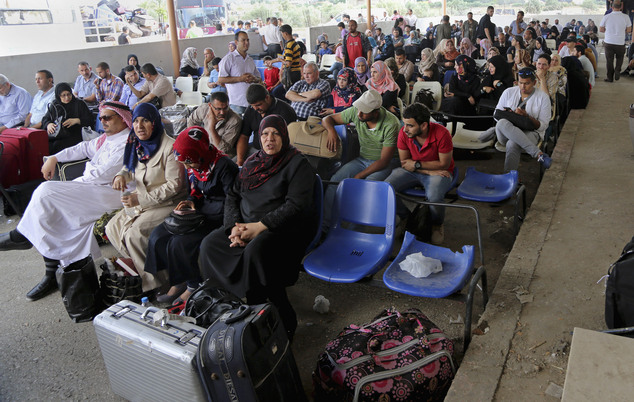

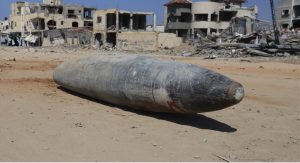

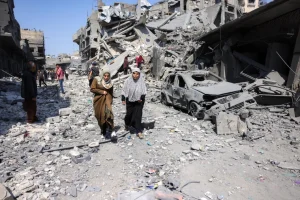
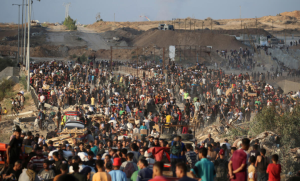






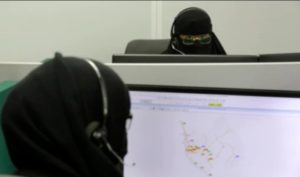









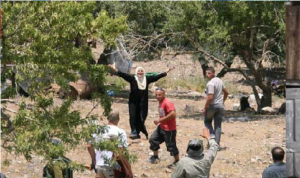









 Mina Indonesia
Mina Indonesia Mina Arabic
Mina Arabic